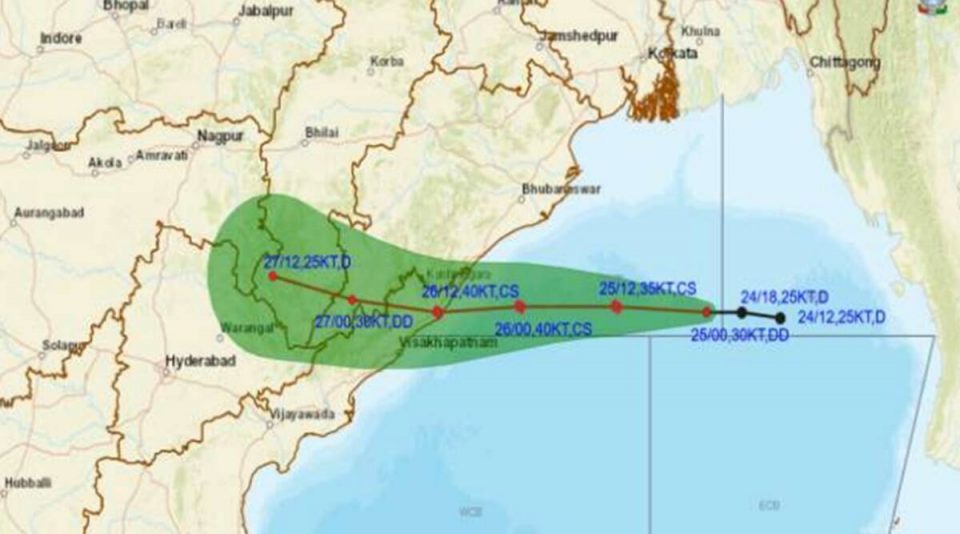
States on alert as Cyclone Gulab likely to hit coastal Andhra, Odisha on Sunday

A cyclone is developing in the Bay of Bengal which is likely to make a landfall in Odisha, Andhra Pradesh on Sunday (September 26) evening, said the India Meteorological Department (IMD).
The cyclone, named Gulab on the recommendation of Pakistan, is in developing stages. The IMD has forecast light to moderate rains (2.4mm to 644mm) over West Bengal, Odisha and coastal Andhra Pradesh on Saturday. Very heavy to extremely heavy rain (115.6mm to over 204.4mm in 24-hours) is likely over south Odisha, north coastal Andhra Pradesh on Sunday.
Gulab will be the third cyclone formed this year since May, with Tauktae (May 14 and 19) developing in the Arabian Sea and Yaas (May 23 and 28) in the Bay of Bengal Sea a few days later.
Also read: Kerala fishermen bear the brunt of climate change
Scientists believe Cyclone Gulab may not intensify into a severe cyclone, given the fact that the weather system may weaken as it crosses the coast. The wind speed is likely to be around 80-100 kmph and waves may rise up to 16 feet at the most.
Skymet said that while the cyclone season begins in October, we are at the fag end of September and since the sea surface temperatures usually become favourable now, it is not rare for us to see cyclones at this stage.
Kendrapara, Jagatsingpur, Cuttack, Bhubaneswar, Khordha, Puri, Ganjam, Gajapati, Kandhmal and Rayagada are likely to bear the maximum brunt. In Andhra Pradesh, Srikakulam, Vijayanagaram, Visakhapatnam, East Godavari, West Godavari, Guntur and Krishna may receive heavy downpour with strong winds.
The IMD has told fishermen not to get deep into the sea from September 25 to September 26.
Meanwhile, tropical storm Dianmu is raging in Vietnam. It is likely to enter the Bay of Bengal soon, but in a weak form.





